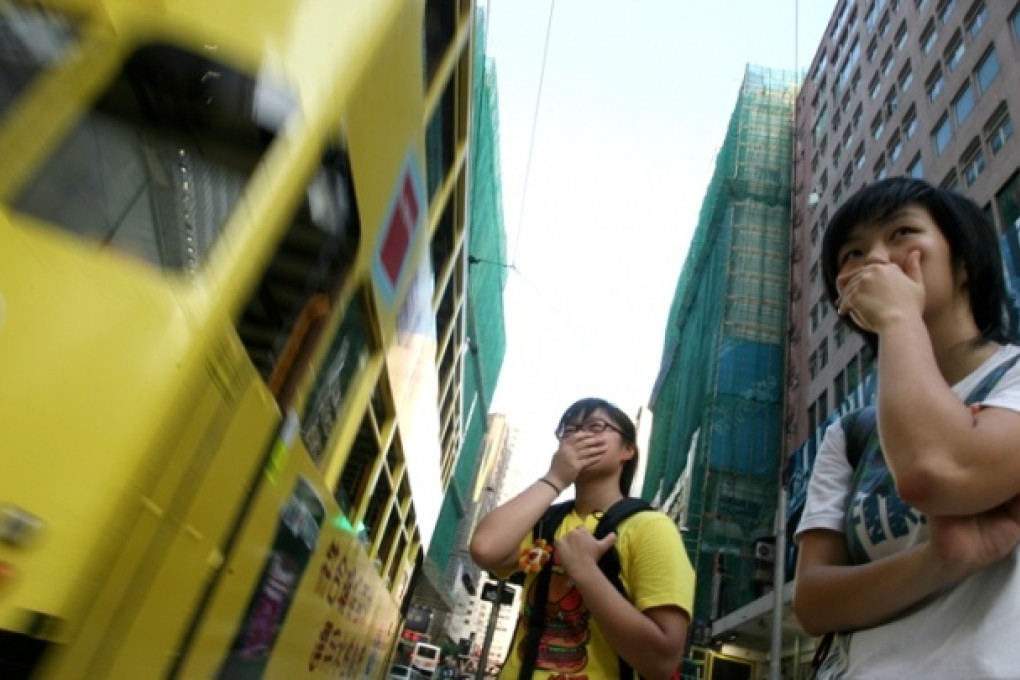Delta air quality improves, but roadside pollution worse in Hong Kong
Clean-ups at power plants and tighter controls on vehicle emissions cited as key factors

Air quality in the Pearl River Delta improved last year, according to the latest regional air quality report, but concerns are mounting about the deterioration of roadside air in Hong Kong.
The biggest improvement was in sulphur dioxide concentrations, which fell by an average of 25 per cent from 2011 levels.
Respirable suspended particles - tiny specks of pollutants that can penetrate the lungs - fell 13 per cent year on year, while ozone dropped by 7 per cent and nitrogen dioxide by 5 per cent.
Environment officials in Hong Kong attributed the decrease to "favourable meteorological conditions" as well as emission reductions. Last year Guangdong expanded the supply of cleaner petrol and boosted a clean-up at power plants and cement kilns, and in Hong Kong vehicle emission standards were tightened, officials said.
According to the Hong Kong Observatory, last year there was 20 per cent less rainfall than normal, and 15 per cent less sunshine. The region also experienced its worst storm in years, when tropical cyclone Vicente swept into the city last July.
Professor Wang Tao, an air pollution expert at Polytechnic University, said the news came as little surprise as pollution had been on a declining trend.